UN Seeks Vast New Powers For Global Emergencies

ZeroHedge News | Tyler Durden
Alex Newman | The Epoch Times
The United Nations is seeking vast new powers and stronger “global governance” tools to deal with international emergencies such as pandemics and economic crises, a new U.N. policy brief has revealed, and the Biden administration appears to support the proposal.
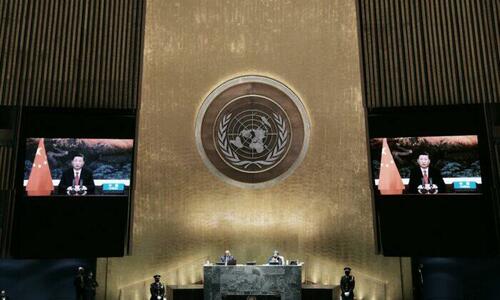
The plan to create an “Emergency Platform,” which would involve a set of protocols activated during crises that could affect billions of people, has already drawn strong concern and criticism from U.S. policymakers and analysts.
Among those expressing concern is House Foreign Affairs Committee Chairman Rep. Michael McCaul (R-Texas), whose committee oversees U.S. foreign policy and involvement in international organizations.
“We must be sure that any global protocol or platform operated by the U.N. respects U.S. national sovereignty and U.S. taxpayer dollars,” McCaul told The Epoch Times.
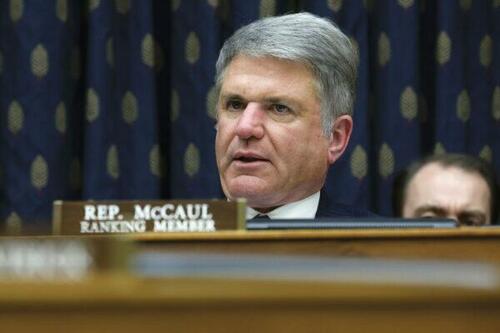
He also noted his concern that the proposed platform expands the authority and funding of the U.S. and the definitions of “emergency” and “crisis” to include, for instance, climate change.
U.N. documents and statements released in March by key leaders of the global organization make clear that climate change is a major piece of the U.N. emergencies agenda.
Other critics who spoke with The Epoch Times expressed concern about the influence of the Chinese Communist Party (CCP) within the U.N., the global organization’s well-documented corruption problems, and its track record of dealing with previous emergencies.
“Allowing the U.N. to deal with this is the equivalent of putting the CCP in charge of global emergencies,” former U.S. Assistant Secretary of State for International Organizations Kevin Moley told The Epoch Times.
UN Vision for Global Crises Response
In a policy brief dubbed “Our Common Agenda” headlined “Strengthening the International Response to Complex Shocks – An Emergency Platform,” U.N. Secretary-General António Guterres laid out his vision for empowering the global organization to deal with global crises.
“The challenges we face can only be addressed through stronger international cooperation,” Guterres declared, calling for “strengthening global governance” for current and future generations.
The policy brief builds on an earlier “Common Agenda” document and comes as U.N. leaders outline the plans for a “Summit of the Future” set to be held during the General Assembly’s annual high-level meeting in September.
If it gets a green light from member states, the global emergency protocols would be “triggered automatically” in case of a global crisis, “regardless of the type or nature of the crisis involved,” the U.N. chief said.
The protocols would bring all sorts of institutions together, including national governments, international institutions, and the private sector. Ultimately, all would have to recognize the “primary role of intergovernmental organs (such as U.N. agencies) in decision-making,” the document states.
“The Emergency Platform, once convened, would be a tool for the United Nations system to implement decisions taken by relevant organs,” according to the policy brief.
State Department Supportive
A spokesman for the U.S. State Department suggested that the Biden administration backs the plan.
“The administration has made clear its firm belief that U.S. national security is best served by engaging actively and comprehensively with the UN and other international organizations,” the spokesman told The Epoch Times in an e-mailed statement about the proposal.
“The U.N. is only as effective, transparent, and accountable as its membership demands, and the U.S. works tirelessly to ensure the U.N. meets those demands.”
The U.N. proposal was unveiled as multibillionaire Bill Gates, one of the most prominent voices during the COVID-19 crisis and a major financier of the World Health Organization (WHO) and vaccines, called for a global “fire department” to address international health emergencies.
Writing in The New York Times last month, Gates said a “Global Health Emergency Corps” could “spring into action at a moment’s notice when danger emerges.”
“The Global Health Emergency Corps will represent massive progress toward a pandemic-free future,” Gates wrote in the op-ed. “The question is whether we have the foresight to invest in that future now before it’s too late.”
UN Emergencies Protocol
Guterres, who is asking governments to approve his plan later this year, said risks are growing and becoming more complex.
“Enhanced international cooperation is the only way we can adequately respond to these shocks, and the United Nations is the only organization with the reach and legitimacy to convene at the highest level and galvanize global action,” he said. “We must keep strengthening the multilateral system so that it is fit to face the challenges of tomorrow.”
Exactly what would constitute an emergency that would trigger the U.N. emergency response wasn’t made clear.
However, the document states that crises without “global consequences” would “not necessarily” be categorized as an emergency requiring U.N. intervention. In other words, some crises that don’t have global consequences might trigger a U.N. response.
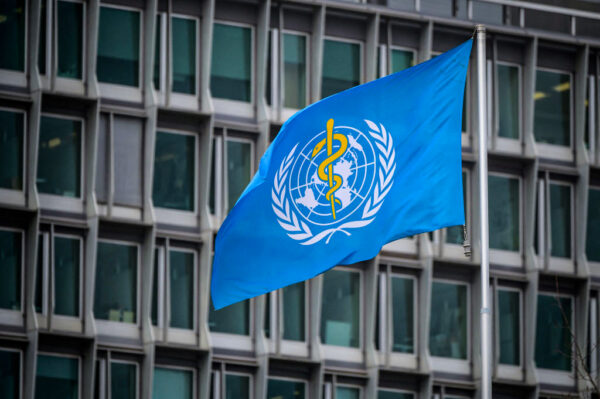
The report gives two examples of recent global crises that struck in the 21st century and that U.N. leaders believe support the case for coordinated global responses: the COVID-19 pandemic and the “cost of living crisis” of 2022.
Rather than offering specifics, the policy brief offers broad categories and types of emergencies that might activate the global protocols. These include climate or environmental events; environmental degradation; pandemics; accidental or deliberate release of biological agents; disruptions in the flow of goods, people, or finance; disruptions in cyberspace or “global digital connectivity;” a major event in “outer space;” and “unforeseen risks (‘black swan’ events).”
Frequently cited throughout the document is the global response to COVID-19. The U.N. chief, who famously led the Socialist International before taking his current post, said that a stronger and a more coordinated U.N. response would have resulted in more people receiving the COVID-19 vaccine. [more people being murdered by the covid vaccine]
WHO leaders’ ongoing efforts to strengthen the U.N. health agency with a new international pandemic treaty and changes to International Health Regulations are touted as key mechanisms for emergencies.

Upon activation of the emergency protocols, government leaders, U.N. agencies, international financial institutions, the private sector, civil society, and experts would all be convened by the U.N. to respond.
The U.N. secretary-general would decide when to activate the protocols. He would also identify all participants and oversee their contributions to the response, the policy brief explains. Contributions mentioned in the document include everything from providing money to changing government policy.
Agenda 2030 a Priority
Among the reasons for the urgency, the U.N. stated that international emergencies could undermine progress toward achieving the controversial Agenda 2030 Sustainable Development Goals, referred to by U.N. leaders as the “master plan for humanity.”
The 17 goals, which cover practically every area of life and have come under fire from critics, were signed by virtually all national governments in 2015, with strong support from the Obama administration and the CCP.
Although the U.S. Senate hasn’t ratified the global agreement as required for all treaties, it’s nonetheless being implemented worldwide, as policies in business and government are aligned with the agenda.
“Once a complex global shock occurs, a more timely, predictable, and effective international response could potentially mitigate some of the impacts on the Sustainable Development Goals and allow the process of recovery to start sooner,” the document states. “The proposal to agree on protocols to convene an Emergency Platform aims to achieve this.”
The impetus for the emergencies plan was a pledge by U.N. member states during the global organization’s 75th anniversary to strengthen “global governance.”
Other components of this strengthening—policies that parallel much of the “Great Reset” announced in 2020 by Guterres and others, such as Klaus Schwab, at the World Economic Forum—include a renewed “social contract.” The WEF is a “strategic partner” of the U.N. in implementing Agenda 2030, especially in terms of getting the private sector onboard globally.
The U.N. emergency-response plan was released in tandem with another report on “Our Common Future” calling for a new “Special Envoy for Future Generations,” the creation of a “Futures Lab,” dramatic shifts in policy toward what the U.N. calls “sustainable development,” and more.
The report calls for enshrining policies that U.N. leaders say will preserve the planet for the future, “at the global level, where some of the most consequential decisions for humanity are taken.”
Critics Point to CCP, Corruption, and COVID
One major concern surrounding the crisis-response proposal among U.S. leaders is the strong influence of the CCP within the U.N.—influence that was felt clearly during the pandemic and that CCP critics say could be even more dangerous in future global emergencies.
Moley, who served in key roles at the international level during multiple U.S. administrations, rejected the U.N. plan.
“This U.N. plan flies in the face of the experience we just had with the latest pandemic, which shows why we should reiterate sovereignty, not give more away,” he told The Epoch Times in a phone interview.
Moley, who oversaw the U.S. relationship with international organizations during his time in the Trump administration, has long sounded the alarm about the CCP’s surging influence within the U.N., a process he says has been supported by both the Obama and Biden administrations. He called it an existential threat to the United States.
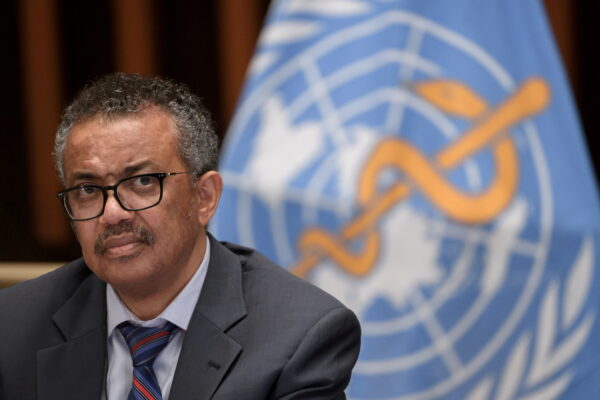
The powerful influence of the CCP and its mostly “authoritarian” and “crony democracy” allies over the U.N. system represents a major danger when it comes to proposals to grant the global outfit more power, Moley said.
“As long as the controlling interests of the U.N. are in the hands of the CCP and aided and abetted by the G77 [an alliance of 134 governments including the CCP], this cannot be allowed,” he said.
As a result of the CCP’s well-documented control over key U.N. agencies and even its powerful influence over most member states, approving the emergencies protocol plan would be tantamount to putting the communist regime in charge of global crises, according to Moley.
Considering that the CCP is a “criminal conspiracy” more than a government and the fact that its agents now dominate vast swaths of the U.N., this is a “recipe for disaster,” he said.
“We need to look at anything sponsored by the U.N. with great skepticism. But unfortunately, our State Department—especially now—does not look at it skeptically. Instead, they look at the United States skeptically.”
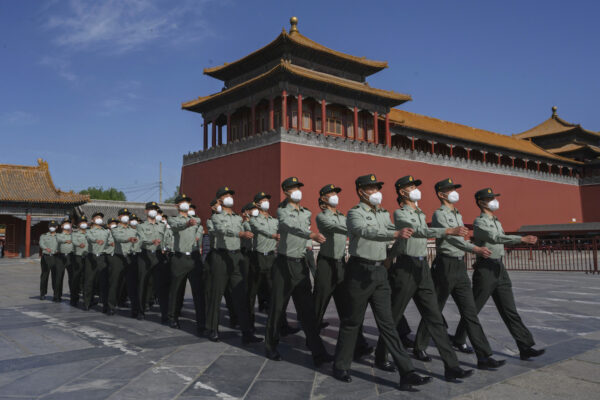
Rather than going along with the U.N. plan, Moley called for completely revamping the U.S. State Department.
“It needs to be taken down to the ground floor,” he said, pointing to obstruction from career bureaucrats throughout Trump’s tenure.
“As long as the State Department remains as currently constituted, we do not have diplomats speaking for America, but for [billionaire financier George] Soros [and his] Open Society foundations, globalism, and all that does to undermine American sovereignty,” he said.
Another critic, international lawyer and former U.N. internal investigator-turned-whistleblower Peter Gallo, noted the organization’s long history of corruption, politicization, and scandal, including cases in which humanitarian aid was diverted or even weaponized for political purposes.
More alarming, though, is what Gallo described as the “sexual exploitation and human trafficking of victims of such disasters.”
“U.N. personnel have an egregious record of involvement in that exploitation themselves—and the organization has a shameful record of covering up allegations of sexual misconduct rather than properly investigating them,” Gallo said.
Gallo and other former U.N. officials, using U.N. data, estimate that more than 60,000 women and children were raped and sexually abused by U.N. personnel during the decade-long tenure of Ban Ki-moon, the previous secretary-general. Gallo said he believes that is a “very conservative estimate.”
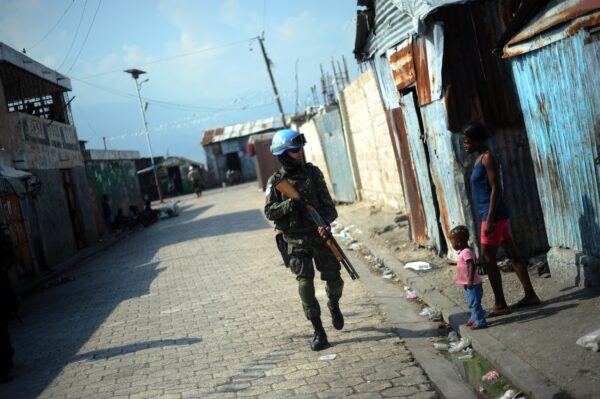
“There is no evidence of anything being any better under António Guterres,” Gallo added, citing impunity for perpetrators and attacks on the U.N. whistleblowers who have tried to stop it.
Considering all that, Gallo suggested that it’s a mistake for governments to consider trusting the U.N. with even more power to oversee emergency responses.
Disputed Claims
Investigative journalist and WHO expert James Roguski, meanwhile, blasted the U.N. and contested many of the claims made in its policy brief on emergency protocols.
For instance, Roguski ridiculed the implication that Africans suffered from not receiving enough COVID-19 vaccines from the West.
“In reality, 16 times as many deaths per capita were attributed to COVID [flu] in North and South America and Europe when compared to Africa,” he told The Epoch Times, citing WHO data while calling the U.N. claims a “blatant lie.” Roguski gained national prominence for his reporting on the WHO’s plans to consolidate power over global health matters.
“In my humble opinion, the globalist organizations have failed to learn a great number of very important lessons during the past three-plus years,” he said.
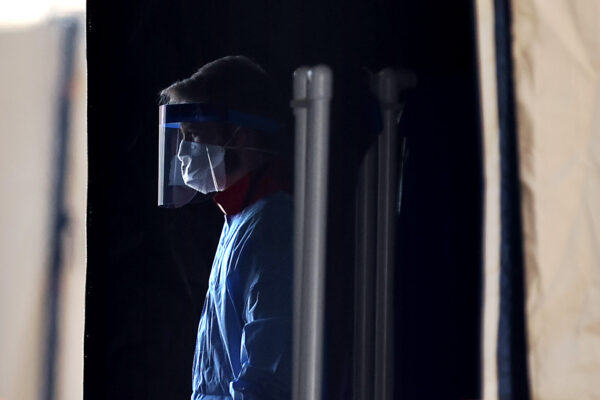
Pointing to COVID-19 policies championed by the WHO and other U.N. agencies that he said were detrimental and, in some cases, “undeniably harmful and deadly,” Roguski called for a different approach.
“They have failed to learn that centralized control performed far worse than individualized and creative health treatments that saved tens of thousands of lives,” he said.
“We the People need to push back against the relentless push for centralized, bureaucratic control that the globalists offer as the solution to the world’s problems. We need to stand up and speak up in support of individual freedoms and national sovereignty.”
U.N. Secretary-General Guterres and his spokesman, Stéphane Dujarric, didn’t respond by press time to a request from The Epoch Times for comment.
Source:
Original Article: https://www.zerohedge.com/political/un-seeks-vast-new-powers-global-emergencies




Comments ()